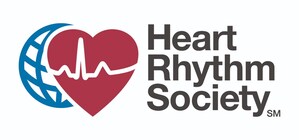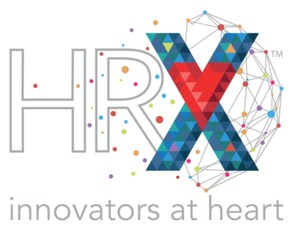New Research Shows 'Flutter' Of Inactivity As Americans Ignore Warning Signs Of Atrial Fibrillation
The Heart Rhythm Society Calls on all Americans to Know Risks and Warning Signs of the Most Common Arrhythmia during Heart Health Month
WASHINGTON, Feb. 12, 2013 /PRNewswire/ -- While the majority of Americans are at least aware of atrial fibrillation (AF), many may be unable to identify or may even ignore the warning signs of the disorder. In fact, according to a new survey issued by the Heart Rhythm Society (HRS), one in three Americans indicate that if they felt their heart quiver or skip a beat they would ignore it or wait for it to happen again before taking action.
This February, in observance of Heart Health Month, HRS spotlights the need for consumer education on the risks and warning signs associated with AF. AF is characterized by a rapid and irregular heartbeat caused when the top chambers of the heart (the atria) quiver (fibrillate) erratically, sometimes faster than 200 times per minute. It can feel like drums pounding, thunder rumbling or fish flopping in the chest. The condition can have a significant negative impact on an individual's quality of life, causing heart palpitations, chronic fatigue and debilitating pain.
Although more than 60 percent of Americans correctly identified AF as a heart rhythm disorder, the survey results also showed that only 32 percent would consult a primary care physician (PCP) and less than 10 percent would seek a heart specialist referral if they felt their hearts quiver or skip a beat. Most would ignore it, wait for it to happen again or even wait for something more serious to occur.
"The fact that many Americans are aware of AF is encouraging, however, it is equally as important that people recognize the warning signs and take appropriate action should they feel or experience something out of the ordinary," said Anne M. Gillis, MD, FHRS, president of Heart Rhythm Society. "Heart Health Month presents an opportunity for us to share information and encourage people to listen to their bodies. It is vital to talk with your doctor because you just don't know when a very small sign could mean something much more."
Through the "AFib Feels Like" awareness campaign and ongoing efforts year-around, HRS is working to increase public knowledge of AF. AF awareness efforts include working with patients across the country to help share personal stories and experiences. In the words of one patient, Dr. David Jones, who has been diagnosed and now living with AF:
"I have lived with atrial fibrillation for 14 years and my first episode occurred when I was 29. Interestingly, the primary trigger of my atrial fibrillation was drinking a very cold beverage and it would feel like popcorn kernels popping in my chest. This is not a common trigger for most people but this reinforces the importance of each individual knowing what AF could feel like. I'm working with the Society to help bring this to people's attention and the importance of knowing the signs of AF."
A Flutter of Inactivity: Five Reasons to Talk to Your Doctor about AF
- Impact: AF affects more than 2.5 million American adults and 4.5 million people living in the European Union.
- Risk: AF can significantly increase the risk of stroke. AF is the most common sustained heart rhythm disorder and increases the risk for heart disease and stroke, both leading causes of death in the United States (U.S.).
- Concern: As the world population ages, the prevalence of AF is projected to increase. In fact, in the next 30-40 years, the number of people diagnosed with AF in the U.S. is expected to more than double.
- Options: AF sometimes requires treatment with medications, controlled electric shocks to the heart or specific procedures. Less often, a pacemaker or another device is implanted to monitor and control the heart's rhythm.
- Specialists: Your primary care physician can refer you to an electrophysiologist – a cardiologist who has additional education and training in the diagnosis and treatment of abnormal heart rhythms.
For more information about the Heart Rhythm Society please visit, www.HRSonline.org.
About the Heart Rhythm Society
The Heart Rhythm Society is the international leader in science, education and advocacy for cardiac arrhythmia professionals and patients, and the primary information resource on heart rhythm disorders. Its mission is to improve the care of patients by promoting research, education and optimal health care policies and standards. Incorporated in 1979 and based in Washington, DC, it has a membership of more than 5,800 heart rhythm professionals in more than 70 countries around the world. www.hrsonline.org
Contact: Kennesha Baldwin
(202) 464-3476
[email protected]
Allison Kassel
(703) 739-8362
[email protected]
SOURCE Heart Rhythm Society
WANT YOUR COMPANY'S NEWS FEATURED ON PRNEWSWIRE.COM?
Newsrooms &
Influencers
Digital Media
Outlets
Journalists
Opted In




Share this article